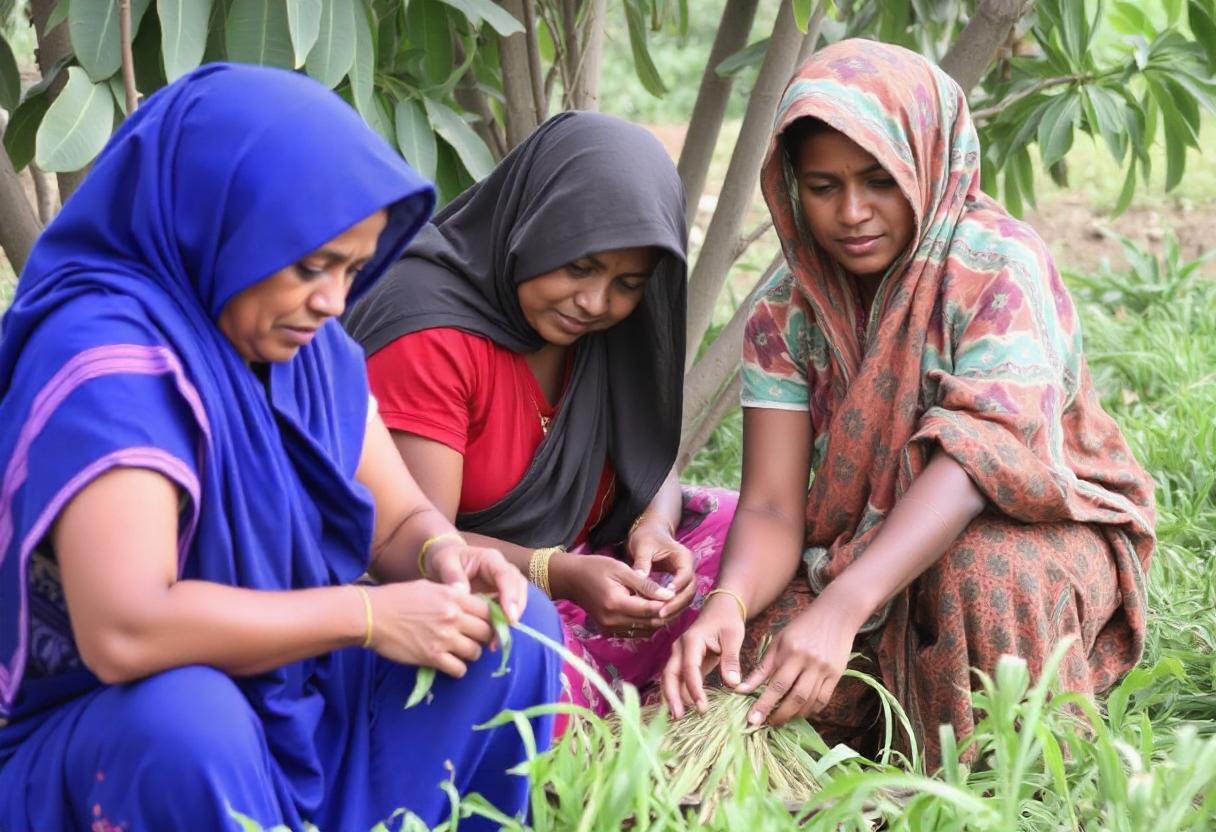
Introduction
Women play a vital role in agriculture globally, contributing significantly to food production, household food security, and rural development. Despite their contributions, they often face barriers that limit their productivity and access to resources. Exploring the role of women in agriculture reveals both their immense potential and the challenges they encounter in farming communities.
Historical Role of Women in Agriculture
Historically, women have always been integral to farming activities, whether in traditional subsistence agriculture or modern commercial farming. In many cultures, women were responsible for planting, weeding, and harvesting crops, while men focused on larger-scale farming activities. Over time, their role evolved as agricultural practices advanced, yet women remained the backbone of small-scale farming.
Women as Small-Scale Farmers
Women constitute a large percentage of small-scale farmers, particularly in developing countries. They manage small plots of land, often without formal land ownership rights, and grow a variety of crops that sustain their families and local markets. Their role in small-scale agriculture ensures the diversity of crops, which contributes to food security and resilience against climate change.
Barriers Faced by Women in Agriculture
Women farmers face numerous challenges that limit their productivity. These include restricted access to land, credit, and agricultural inputs like seeds, fertilizers, and tools. Social and cultural norms in some regions also prevent women from participating fully in decision-making processes related to farming. Additionally, they often lack access to education and extension services, further hindering their ability to adopt modern farming techniques.
Women and Livestock Farming
Apart from crop production, women are deeply involved in livestock farming. In many rural areas, they are responsible for taking care of animals such as poultry, goats, sheep, and cattle. Managing livestock is a critical aspect of household income and food security, providing both nutrition and financial resources through the sale of animal products.
Women in Agricultural Cooperatives
Agricultural cooperatives have emerged as a way for women farmers to overcome some of the barriers they face. By joining cooperatives, women can pool their resources, access shared tools, and receive training and support. Cooperatives also provide a platform for women to advocate for better policies and gain a stronger voice in agricultural decision-making.
The Role of Women in Agricultural Innovation
Women farmers are often at the forefront of agricultural innovation, particularly in adopting climate-smart practices and sustainable farming techniques. Their knowledge of local ecosystems and traditional agricultural practices makes them essential contributors to the development of innovative solutions to food production challenges. However, the potential of women in agricultural innovation is often underutilized due to limited access to technology and research.
Impact of Gender Equality on Agricultural Productivity
Research shows that if women had the same access to resources as men, agricultural productivity could increase significantly. Closing the gender gap in agriculture would not only enhance food security but also drive economic growth in rural areas. Empowering women through education, technology, and access to credit is critical for realizing the full potential of agriculture.
Women and Agribusiness
Many women are now breaking into agribusiness, starting small enterprises that process and market agricultural products. From running local food markets to launching export-focused businesses, women in agribusiness are playing a crucial role in adding value to agricultural produce. These ventures are not only providing employment but also fostering innovation in the agricultural sector.
The Future of Women in Agriculture
The future of women in agriculture depends on addressing the structural barriers they face. With better policies, targeted investments, and inclusive agricultural practices, women have the potential to transform the sector. Gender-sensitive approaches are necessary to ensure that women farmers benefit from new technologies, access to markets, and financial resources, enabling them to thrive and contribute fully to global food security.